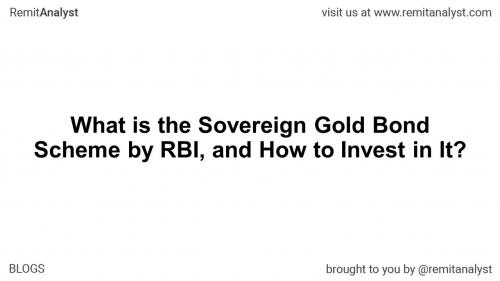What is the Sovereign Gold Bond Scheme by RBI, and How to Invest in It?

Sovereign Gold Bond (SGB) schemes represent a government-backed initiative where gold serves as the underlying asset for these securities. They serve as an attractive alternative to physical gold ownership. Investors are required to make a cash payment at the time of issuance, and upon maturity, they receive the redemption amount in cash. The Reserve Bank of India (RBI) administers the issuance of these bonds on behalf of the government.
Advantages of the Scheme
Investors benefit from the protection of the value of the gold they purchase, as they receive the prevailing market price upon redemption or premature redemption. SGBs offer a more secure option compared to storing physical gold, reducing associated risks and expenses. At maturity, investors are assured of receiving the market value of gold along with monthly interest. Importantly, SGBs do not carry the typical complications associated with gold jewelry, such as wastage and making charges.
Eligibility
SGBs are open to Indian residents, including individuals, trusts, Hindu Undivided Families (HUFs), universities, and charitable institutions. Individual investors who change their status to Non-Resident Indian (NRI) can continue to hold their SGBs until maturity or redemption.
Scheme Tenure
SGBs have an initial 8-year term, with investors having the option to exit in the fifth, sixth, or seventh year.
Joint Holding
The RBI permits joint holding of SGBs.
Minimum and Maximum Investment Limits
Individuals can invest a minimum of one gram and a maximum of four kilograms. The minimum investment is consistent across all entities, but for HUFs, the maximum limit is four kilograms, and for trusts and similar entities, it is twenty kilograms. In cases of joint ownership, the limit applies only to the primary applicant. The annual investment ceiling encompasses bonds subscribed to during the government's initial issuance and those acquired in the secondary market. Investments made as collateral with banks and other financial institutions are excluded from this limit.
Redemption Amount
Upon maturity, Gold Bonds are redeemed in Indian Rupees, with the redemption price based on the average closing price of 999 pure gold over the preceding three business days, as reported by the India Bullion and Jewellers Association Limited. Interest and redemption proceeds are credited to the customer's specified bank account. Investors are notified one month prior to the bond's maturity. Any changes in account details or contact information must be promptly communicated to the bank/SHCIL/Post Office.
Premature Encashment
Despite the 8-year term, early withdrawal is possible on coupon payment days starting from the fifth year of issuance. Bonds can also be transferred to another eligible investor. Requests for early redemption should be made to the relevant bank/SHCIL office/Post Office/agent at least thirty days before the coupon payment date. RBI considers early redemption requests only if the investor visits the respective bank or post office at least one day before the coupon payment date. The redeemed funds are deposited into the customer's designated bank account as specified during the initial bond application.
Risks
There is a risk of capital loss if the market price of gold declines. However, investors retain ownership of the gold units they have purchased.
Bond Pricing
The principal amount of Gold Bonds is denominated in Indian Rupees, determined by the simple average of the closing price of 999 purity gold announced by the India Bullion and Jewelers Association Limited during the last three business days of the week preceding the subscription period.
Tax Implications
Interest earned on the bonds is subject to taxation. Capital gains tax on SGB redemption has been waived. Long-term capital gains resulting from bond transfers are eligible for indexation benefits. TDS (Tax Deducted at Source) does not apply to the Bond, but bondholders are responsible for complying with tax regulations.
Application Process
Customers can apply online through the websites of scheduled commercial banks, listed below. For online applications with digital payments, the Gold Bond price is discounted by Rs. 50 per gram from the nominal value. Application forms are available at issuing banks, SHCIL offices, designated Post Offices, and through agents. Additionally, they can be downloaded from the RBI's website. Some banks also offer online application services.
In conclusion, the Sovereign Gold Bond scheme represents a secure and low-risk investment opportunity designed to offer investors the prospect of substantial returns. For those seeking financial stability and future investment potential, this scheme should be a consideration.
Advertise on APSense
This advertising space is available.
Post Your Ad Here
Post Your Ad Here
Comments